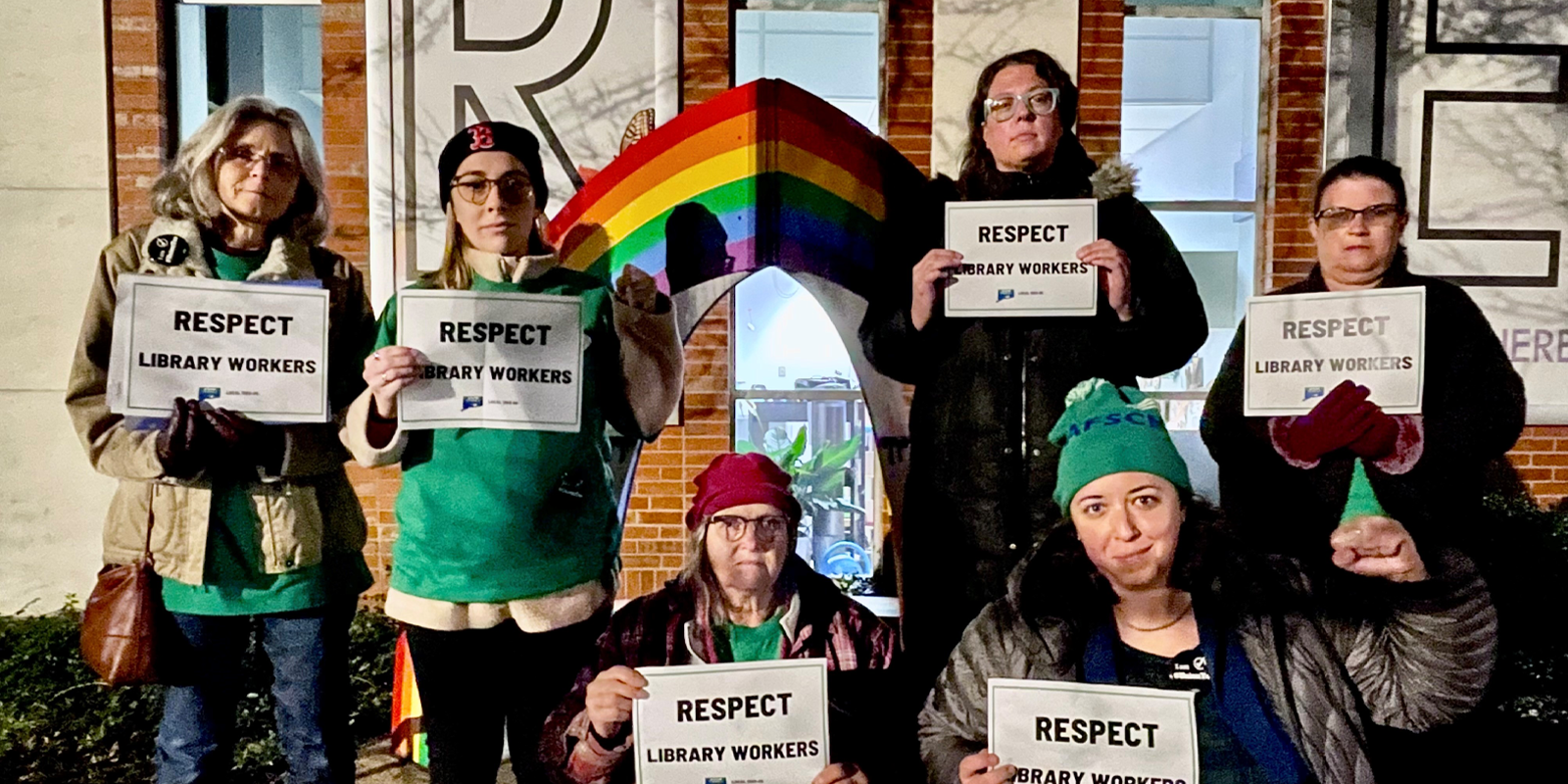Workers at the Russell Library in Middletown, Connecticut, are celebrating their newly won contract, which took nearly a year of tough negotiations and highlights the union difference.
Thirty-three Russell Library staff members covered under the fiscal year 2023-2025 contract perform the full range of duties that keeps their institution running. Members of AFSCME Local 1303-85 (Council 4) overwhelmingly ratified the collective bargaining agreement last month.
The contract includes raises, retroactive pay dating back to when the previous agreement expired in July 2022, additional vacation time, a higher tuition benefit and shoe allowances for facilities and security staff.
Jennifer Billingsley, Local 1303-85’s president and the head of the Russell Library’s Department of Youth and Family Learning, said securing retroactive pay was the most challenging part of the negotiations. Convincing management to increase salaries was another tough task.
Having served their community throughout the COVID-19 pandemic, members felt they deserved higher wages and back pay for putting their lives and the lives of their families at risk. But management didn’t respond to their requests until the very end of the negotiating process.
“Our raises and retroactive pay … were held over members’ heads,” Billingsley said in an interview last week. “It’s difficult to keep morale up in situations like that.”
When the library Board of Trustees held a meeting on Nov. 15, the local’s members and members from other Middletown unions – including from AFSCME Local 1467, Middletown School Employees – turned up in force.
Flanked by this display of worker strength and solidarity, Billingsley read out a statement highlighting the work of library staff during the pandemic and stressing the importance of honoring that selfless work by providing retroactive pay and higher wages to counter inflation.
Management addressed the two issues in the very next bargaining session. Shortly thereafter, the two sides reached an agreement.
“Showing up in person at the Board of Trustees meeting was a big action. It wasn’t just us. We were joined by other unions from the city of Middletown and also from our colleagues at AFSCME. It was members and it was also members being supported by other unions,” Billingsley said. “We’re so grateful.”
Russell Library workers will receive 3.5% in retroactive pay, a raise of 3% beginning July 1 of this year and an increase of 3.5% on July 1, 2024. The contract expires in July 2025, according to Billingsley.
She highlighted two other contract provisions.
One increases the tuition benefit to $1,000 a semester from around $400 a semester in the previous contract. Though $1,000 wouldn’t fully cover in-state tuition, it would give workers a more equitable opportunity to further their education, Billingsley said.
The second allows workers to carry over up to eight weeks of leave from one year to the next. Given that the Russell Library workers don’t get parental leave, Billingsley said this provision will help new parents bond with their children. In June 2022, management barred workers from rolling over any leave; with few exceptions, they had to use up their annual leave or lose it.
Emily Demicco, Council 4 staff representative who works with Local 1303-85 and negotiated the contract along with the local’s negotiating committee, noted the importance of solidarity in securing the new agreement.
"Local 1303-085 organized a diverse group of members to be a part of the negotiating team. The team not only showed real unity at the table but worked in partnership with the broader membership to develop shared priorities for negotiations,” Demicco said. “Their success in achieving a fair contract is a testament to the power of collaboration among co-workers and the result of making their voices heard at the Board of Trustees meeting.”
